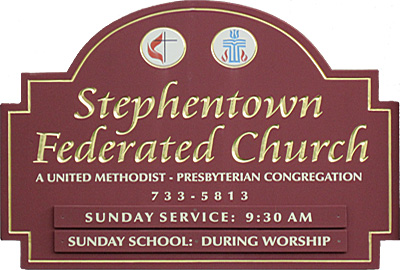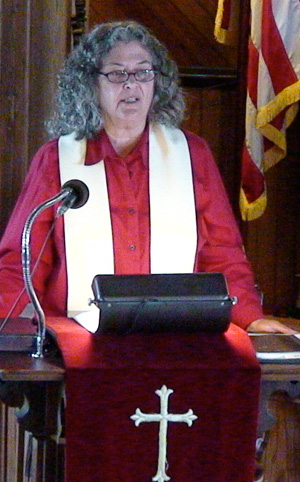Pastor's Sermons
Sermon for April 3, 2011 - KEEP ASKING! (Based on John 9)
Today's Gospel is a good example of how John the Evangelist presents the Theology of the Christ in his writings. Unlike Matthew, Mark and Luke, John is much more concerned with presenting Jesus as Messiah, encouraging those Jews who had been banished from the Synagogue, and providing a theological rather than historical context.
The story of the blind man gives us many thoughts to ponder, three of which are: blindness, mud and questions.
We know that in the time of Jesus, an illness or disability was considered the result of sin. This connection between sin and suffering was a long-standing belief, and in this passage, Jesus breaks that bond. However, we see that the other people had also been blind; the man had been there begging for years. Yet nobody knew who he was! Do we become "blind" to those who are different from ourselves? Do we miss the obvious opportunities to reflect God's love? Perhaps the fact that this man is not named in the story gives us the chance to put ourselves in the story, and reflect on those around us who could use our compassion, but whom we walk right by.
Blindness does not have to be physical for it to disable us. When Helen Keller was asked about her blindness, she said, "It could have been worse; I could have lost my Vision."
Why did Jesus not just touch the man and cure him? Why did he use spit - and mud? Again, this could be John's referencing theology, reminding us of Creation. Humans were brought forth from the earth, and John is reminding us that this is also where we will receive our "new life." Our new vision. John is also determined that we not miss the point, telling us explicitly that Siloam means "sent." Wash yourself in the One who is sent. Wash away your past blindness and see in a new way. It is also a reminder that God uses the every day stuff of life, the spit and the mud, the daily things within our world, to create miracles. That, thus cleansed, we, too are sent.
And what about the questions? The townspeople and the Pharisees sound like spoiled children, who keep asking the same question until they get the answer they want. Or an answer that will make sense to them, based in their already preconceived notion of the law. They were unable or unwilling to hear an answer that would require them to change their thinking.
Jan Richardson says that sometimes questions are doors which open to new vision and wider understanding. Sometimes they are walls constructed around a challenge to our comfortable way of thinking. It seems that in the case of the people surroundng the blind man, they were walls. When we ask God a question, are we really open to the answer?
I think my favorite line in the whole story is the blind man's response: "All I know is, I was blind, and now I can see."
It reminds me of the lyrics to an Art Garfunkle song, "I love you, and that's all I know."
Perhaps for these last weeks of Lent we can ask questions, too. Hopefully, they can be doors to new understanding which will deepen our relationship with God.
- Where does my vision need to be expanded?
- Where is God being revealed to me in the mud" of my every day life?
- Where am I being sent - who needs me to notice them, and share the Good News?
- How can I be more open to how God answers my questions?
Finally, may our constant prayer be, "God, I love you..... and that's all I know."


